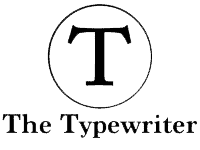Politics in South Africa is currently being dominated by parliamentary talks. Between this year’s State of the Nation Address (SONA) on Thursday 12 February and the controversial 2015 budget speech (which took place on Tuesday 19 May), the government is under considerable pressure to deliver service promptly – something that no South African department seems to be particularly good at.
Viewers would have been left red-faced as half of the nation’s MPs were escorted out of the room for disruptive behaviour at this year’s SONA. Julius Malema, leader of the Economic Freedom Front (EFF) party, led the pack with a volley of immature remarks regarding the question of when President Jacob Zuma would be paying back the money he owed for Nkandla – the lavish private homestead that Jacob Zuma allegedly paid for with state money.
When Malema did not back down, National Assembly speaker Baleka Mbete called for security to escort him and his disciples out. Democratic Alliance (DA) parliamentary leader Mmusi Maimane then questioned the use of police in Malema’s escort, which, according South African law, is unconstitutional. When his questions went unanswered, every single DA MP left the house, arguing that no rules in parliament had been upheld.
What South African citizens probably found the most disturbing, besides the fact that their nation’s leaders were engaging in fistfights in response to their dismissal, was the sheer lack of disrespect for democracy and any sort of authority. The SONA is neither the time nor the place for uncalled disgruntled outbursts. Indeed, it is the one time each year that the President is allowed to address the country, without interruption or delay, in order to foster good spirits for the year ahead.
As for the 2015 budget, there are no major surprises. General expenditure has increased by 7.9% per annum. As usual, the biggest slice of the pie goes to basic education that has seen an 8% increase, followed by economic affairs, local development and social infrastructure, defence, health, and employment.
The biggest shock lies in the hefty increase of fuel and levy for the road accident fund, where it appears the government has taken advantage of the drop in international oil prices to gain some extra money. Sin tax also took a natural increase, but was higher than expected. In contrast, social grants were increased –albeit not by much.
South Africans would not have been the slightest bit pleased at the increase in income tax for those who earn more than R181 900 per year, although those who fall below that bracket saw a substantial fall in their income tax. South Africa’s Gross Domestic Product (GDP) growth, estimated at 2% for 2015, is considerably lower than last year’s estimates; while consumer inflation, down by 4.3%, is expected to rise again in 2017.
It appears that for the first time the government is seemingly pessimistic about economic growth, although on a minimally positive note they have not done anything drastic in the budget to alleviate this. The only positive message coming through it seems to be that the government intends to make a conscious effort to be more transparent with taxpayers to ensure they are getting true value for money.
